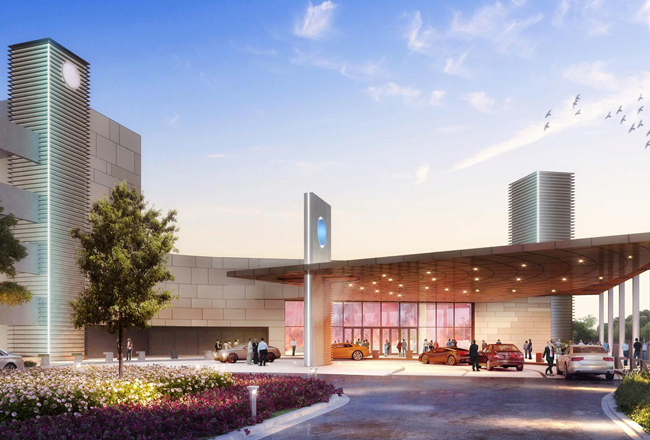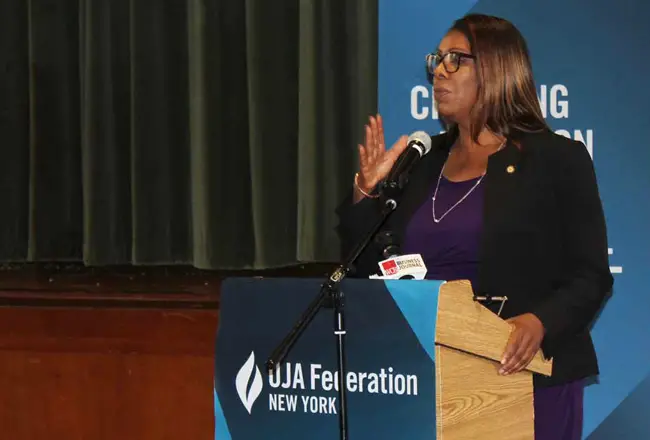MGM Resorts International has made good on its threat to pursue litigation to prevent the opening of an East Windsor casino operated by the Mashantucket Pequot and Mohegan tribes. However, the target of the litigation was not in Connecticut, but in the nation”™s capital.
MGM Resorts filed a lawsuit in the U.S. District Court for the District of Columbia against the U.S. Department of the Interior, seeking to void the department”™s approval of amendments that enable the tribes”™ MMCT joint venture to build and operate a commercial casino on nontribal land.
“Interior”™s approval decisions establish an unlawful state-conferred monopoly over commercial gaming rights in Connecticut,” MGM Resorts said in a statement. “These decisions also stand in the way of an open, competitive process that MGM believes would result in a better deal for the people of Connecticut. An open process would allow the state to evaluate competing proposals and choose the operator that offers the best investment opportunity, creates the most new jobs and economic expansion and maximizes revenue to the state.”

MGM Resorts also faulted the department”™s decision for encouraging proposed legislation that would enable MMCT to open a casino in Bridgeport, a target market where MGM Resorts offered its own proposal for a gambling mecca. Connecticut law only allows the Mashantucket Pequot and Mohegan tribes to operate casinos in the state, and legislative efforts to expand the law to include non-tribal entities have failed.
“The recent proposal to grant MMCT a no-bid Bridgeport casino license doubles down on Interior”™s errors rather than learning from them and moving Connecticut forward,” the company”™s statement continued. “Like the East Windsor proposal, the new Bridgeport bill relies on the Interior Department”™s unlawful approval decisions and could not function without them. More fundamentally, the Bridgeport bill refuses to allow the state to determine the best competitor. It shortchanges Connecticut and its residents by granting MMCT casino rights without requiring MMCT to maximize job creation, investment, and new revenues.”
The lawsuit comes in the aftermath of a failed attempt by Gov. Ned Lamont to convince the tribes to jettison the East Windsor casino, dubbed Tribal Winds, in exchange for exclusive claim to Connecticut’s internet sports betting, the license for the Bridgeport casino and the sale of Hartford”™s XL Center to the tribes. The tribes rejected the proposal by noting that they already invested $20 million into their proposed $300 million East Windsor venue, adding that they were not interested in the XL Center.
After the lawsuit was announced, Lamont issued a statement with an I-told-you-so resonance.
“As I have consistently said, our state needs to reach a global gaming resolution that will avoid years and years of complex litigation,” the governor’s statement read. “The gaming industry in Connecticut represents a significant portion of our economy, and as other states have demonstrated, there is room to grow it. It has always been my intention to develop a comprehensive gaming platform that not only strengthened Connecticut”™s gaming industry, but protected it from litigation. Our administration remains committed to these objectives and looks forward to working toward a solution that moves the state forward with the General Assembly.”
Molly Block, press secretary for the Department of the Interior, told the Business Journal, “The department cannot comment on ongoing litigation.”
Andrew Doba, a spokesman for MMCT, was unimpressed with the lawsuit.
“MGM pursues litigation because that’s what MGM does,” he said. “Remember, this is the same company that sued the victims of a mass shooting to cover their liability. We should also all remember the last time MGM waded into the D.C. swamp it resulted in multiple investigations, the convening of a grand jury and the resignation of a cabinet secretary.”
Doba added that the “choice for Connecticut policymakers can’t get any clearer. We can either let a Las Vegas company that generates not one dime of revenue for the state push us around or we can stand strong with the tribes and an industry that’s generated more than $8 billion in tax revenue and currently employs 18,000 people.”
Bridgeport Mayor Joe Ganim told the Business Journal that he considered the latest development “unfortunate,” adding that while the tribes and MGM Resorts shared an interest in a Bridgeport casino development, he lamented that “we have the opportunity to create jobs in Connecticut and we can’t seem to get there.” Nonetheless, Ganim hoped that “cooler heads can prevail” and the opposing sides could put together a solution to the issue.






















